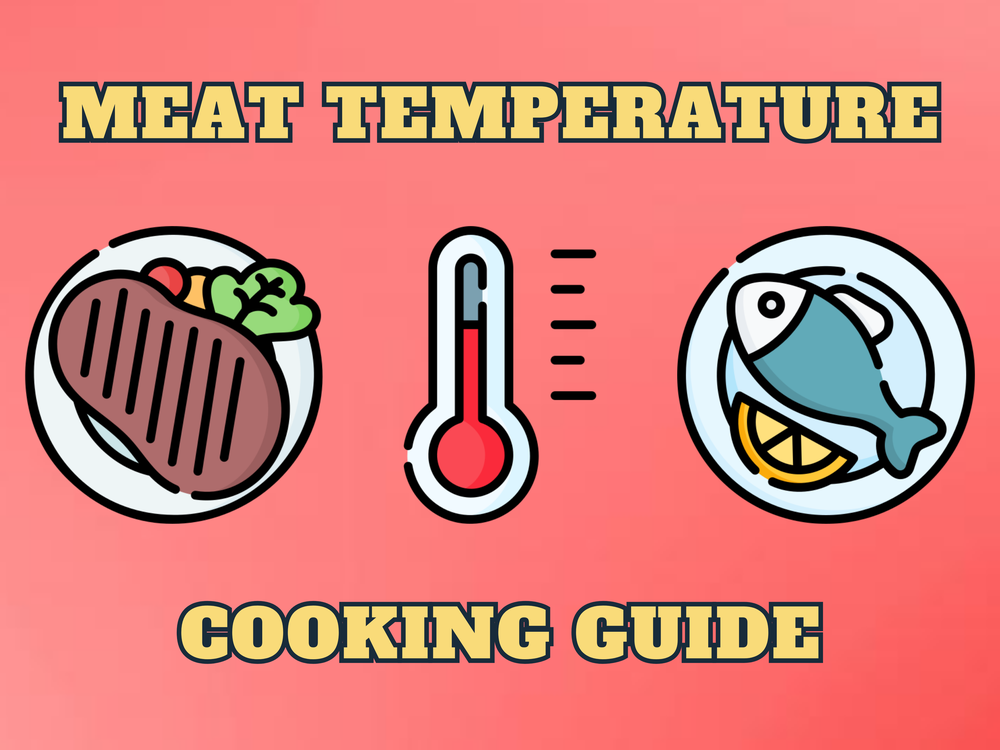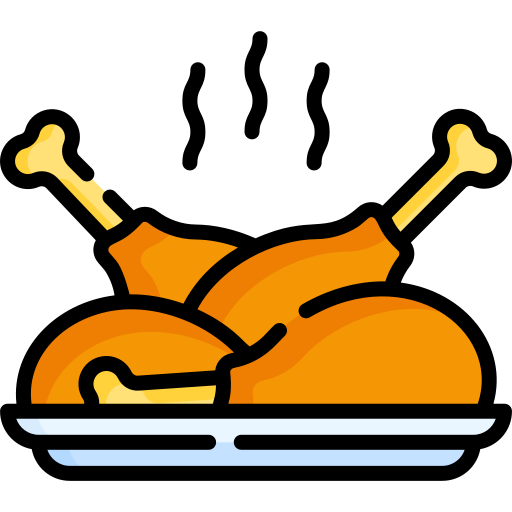
Introduction
I swear I look up the minimum temperatures for meat and fish all the time. So I wanted to compile them all here mainly for myself, but also if anyone else needs a guide of what temperature to cook each piece of meat to.

List

Beef

Chicken

Pork

Salmon

Shrimp

Tilapia
.png)
Turkey

Note about Temperature and Time
The temperatures given above are the minimum internal temeratures of certain meats to be considered safe to consume. However, the killing of bacteria is a function of not just temperature, but also time.

The USDA's guidelines use what's called a 7-log10 curve. If a piece of chicken were to start with 10,000,000 salmonella bacteria when raw, it's considered save to eat when only 1 is remaining. This is the purpose of the 7-log10 curve; there is a 1/107 chance that salmonella would be left on the cooked piece of meat.

In order to reach this safety margin, you have to cook your chicken to a specific temperature for a specific time. The below table outlines the time it takes for 99.99999% of bacteria to be killed.

If you prefer graphs to tables, you can view the curve below, courtesy of Kenji Lopez-Alt of Serious Eats. As you can see, it takes exponentially less time for the bacteria to die as the temperature increases.

Assuming that you can't devour a chicken breast in under 14 seconds, you're safe cooking chicken to temperatures just shy of 165F. That way, you can avoid having a dry piece of meat, while also being perfectly save to consume. When in doubt, buy an instant meat thermometer.

Sources
This post may contain affiliate links
I swear I look up the minimum temperatures for meat and fish all the time. So I wanted to compile them all here mainly for myself, but also if anyone else needs a guide of what temperature to cook each piece of meat to.

List

Beef
- Ground beef: 160F
- Steaks
- Rare: 120F
- Medium Rare: 130F
- Medium: 140F
- Medium Well: 150F
- Well Done: 160F

Chicken
- Chicken breast: 165F
- Chicken thighs: 180F
- Ground chicken: 165F

Pork
- Ground pork: 160F
- Whole cuts
- Medium Rare: 145F
- Medium: 150F
- Medium Well: 155F
- Well Done: 160F

Salmon
- Rare: 120F
- Medium Rare: 125F
- Medium: 130F
- Medium Well: 135F
- Well Done: 140F

Shrimp
- Shrimp: 145F

Tilapia
- Tilapia: 145F
.png)
Turkey
- White meat: 165F
- Dark meat: 180F
- Ground turkey: 165F

Note about Temperature and Time
The temperatures given above are the minimum internal temeratures of certain meats to be considered safe to consume. However, the killing of bacteria is a function of not just temperature, but also time.

The USDA's guidelines use what's called a 7-log10 curve. If a piece of chicken were to start with 10,000,000 salmonella bacteria when raw, it's considered save to eat when only 1 is remaining. This is the purpose of the 7-log10 curve; there is a 1/107 chance that salmonella would be left on the cooked piece of meat.

In order to reach this safety margin, you have to cook your chicken to a specific temperature for a specific time. The below table outlines the time it takes for 99.99999% of bacteria to be killed.
| Temperature | Time |
|---|---|
| 136F | 68.4 minutes |
| 140F | 27.5 minutes |
| 145F | 9.2 minutes |
| 150F | 2.8 minutes |
| 155F | 47.7 seconds |
| 160F | 14.8 seconds |
| 165F | Instant |

If you prefer graphs to tables, you can view the curve below, courtesy of Kenji Lopez-Alt of Serious Eats. As you can see, it takes exponentially less time for the bacteria to die as the temperature increases.

Assuming that you can't devour a chicken breast in under 14 seconds, you're safe cooking chicken to temperatures just shy of 165F. That way, you can avoid having a dry piece of meat, while also being perfectly save to consume. When in doubt, buy an instant meat thermometer.

Sources